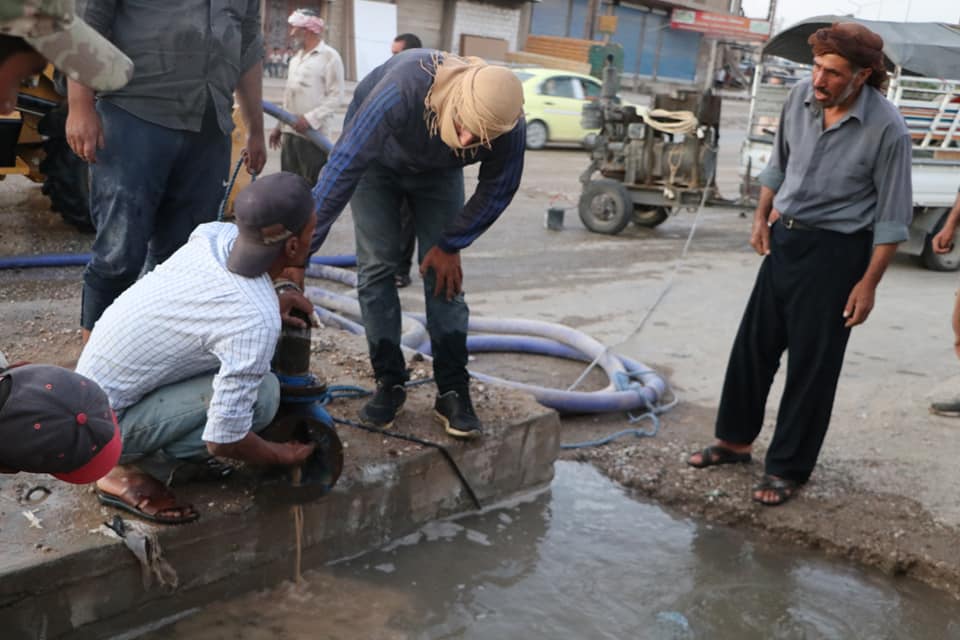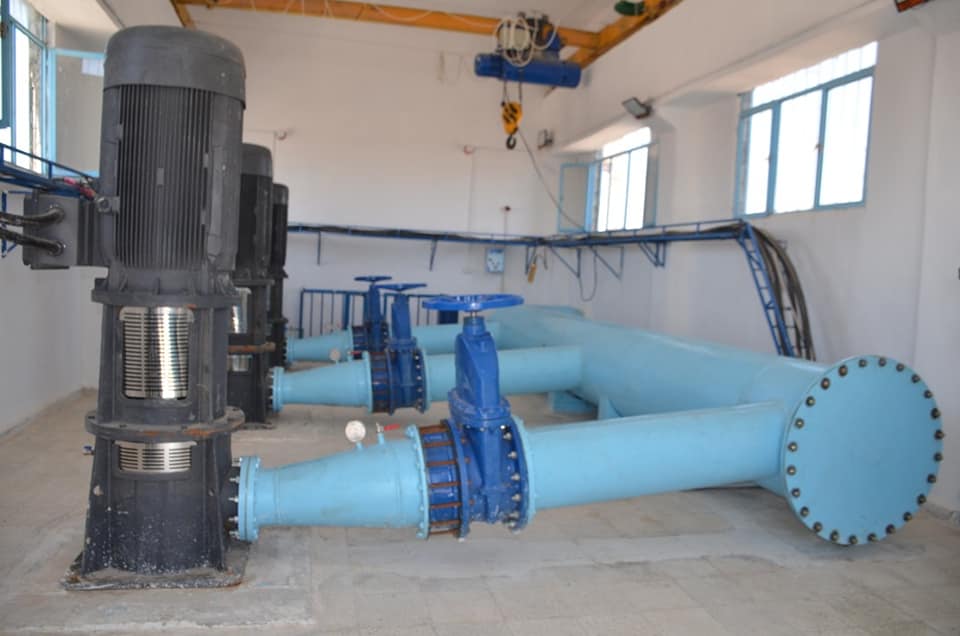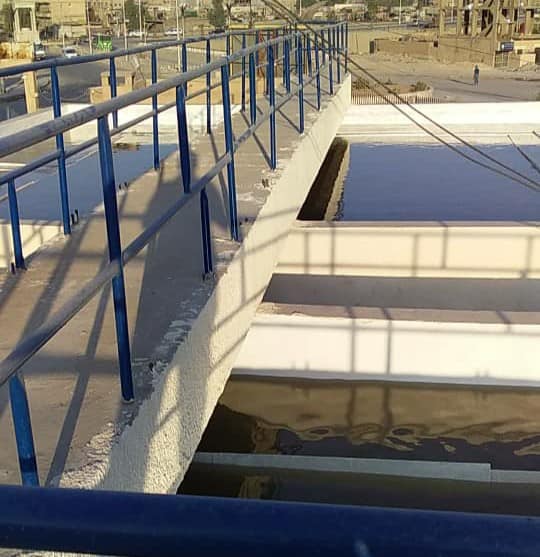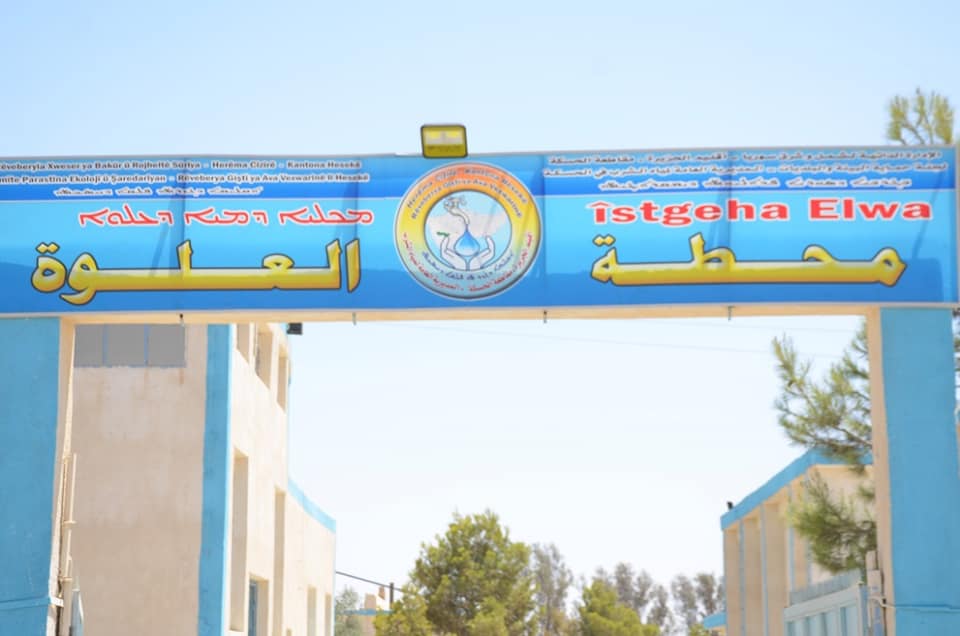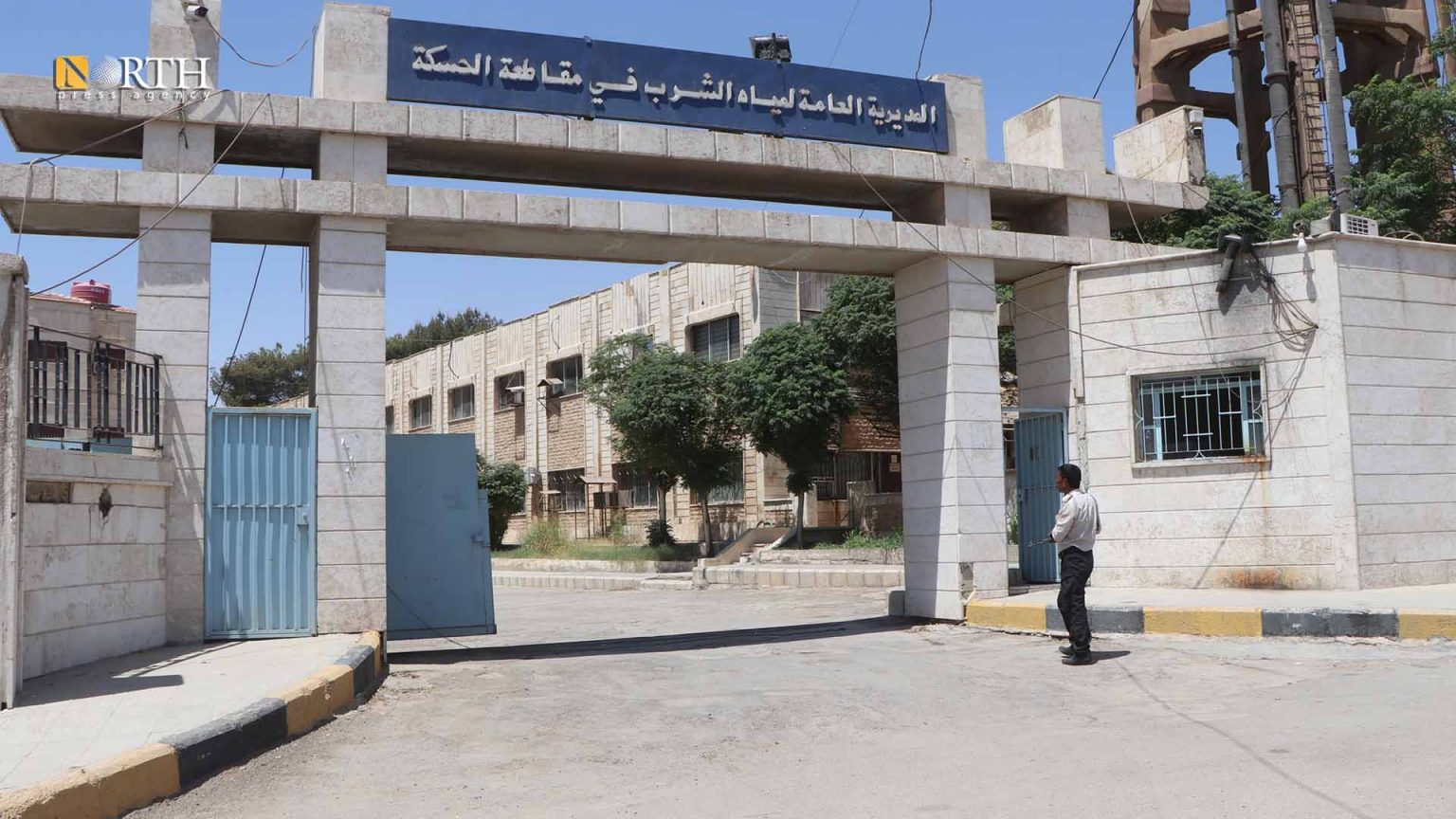The water of the Euphrates River has actually reached the reservoirs of the water station of al-Aziziyah after nine-month work on the project of bringing the Euphrates water to Hasakah, Salwa Saleh, co-chair of the General Directorate of Drinking Water in Hasakah, northeast Syria, said on Tuesday.
“The 130-km pipes and the lifting stations, which have recently entered into service, are still under test, with the arrival of quantities of water to the tanks of the Aziziyah Water Station,” she told North press.
Early in 2021, Autonomous Administration of North and East Syria (AANES) began the project to draw the Euphrates River water form al-Suwar station in the countryside of Deir ez-Zor to Hasakah, to which the Turkish forces have cut off water by stopping the operation of the Allouk station in the countryside of Sere Kaniye (Ras al-Ain) for about 20 times, since its control over the area in mid-October 2019.
Saleh pointed out that she cannot make any statement about the quantities of incoming water, the pumping system and its times, unless the works are fully completed and the investment system and its stability are checked, adding that the pumping mechanism will be determined later by the Directorate.
The project, which consisted of four phases, was scheduled to be completed within three months, in addition to the maintenance of al-Aziziyah water station, at cost of one and a half million dollars, according to a previous statement of the Autonomous Administration.
However, the emergence of many problems such as farmers and residents in the southern countryside drawing water illegally from the lines towards their homes or agricultural lands, in addition to the presence of blockages in the line, prevented the project from being completed within the specified time period.
The length of the lines from al-Suwar station in the eastern countryside of Deir ez-Zor to the city of Hasakah is estimated at 130 km.
“This project is not an alternative to Alouk water station; rather, it is an emergency case to secure only about 15 percent of the water needs of the residents of Hasakah,” the co-chair of the Municipalities and Environment Committee in Hasakah region had previously told North Press.
